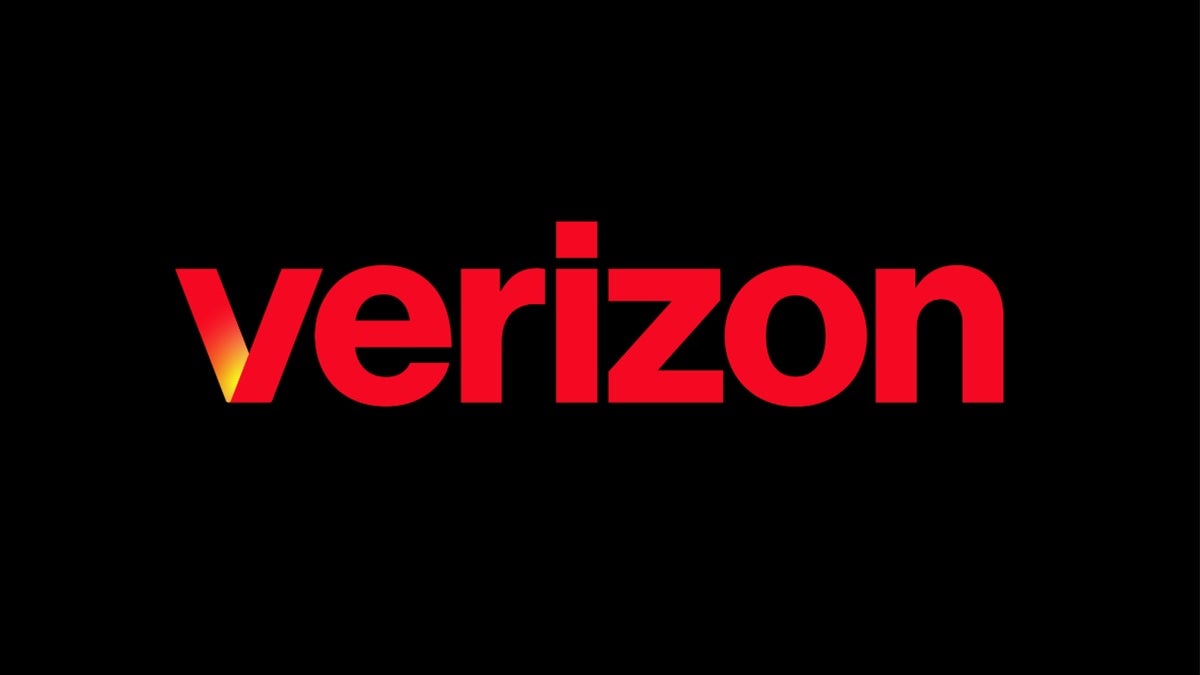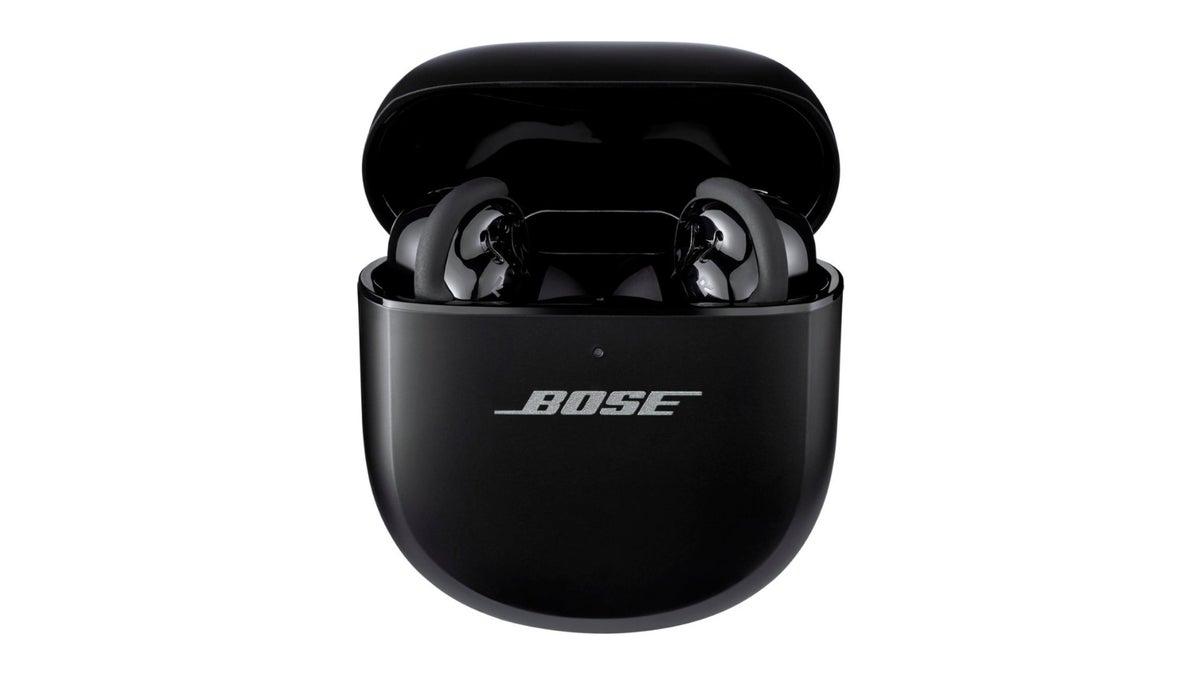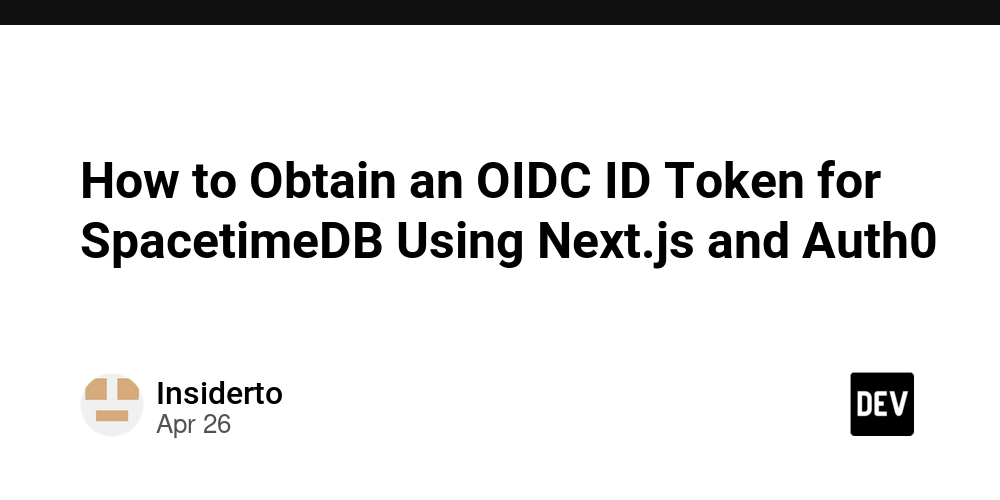Strengthening Healthcare IT Security with Entra ID Certificate Management
Strengthening Healthcare IT Security with Entra ID Certificate Management As the healthcare industry embraces digital transformation, securing electronic health records (EHRs), medical devices, and patient data has never been more critical. Amid rising cyberattacks targeting healthcare systems, IT teams must adopt strong identity and access controls that go beyond passwords. Entra ID certificate management plays a crucial role in this shift, enabling secure authentication in environments with strict compliance demands and high-stakes data. The Unique Security Landscape of Healthcare Healthcare organizations face some of the toughest security challenges across industries. With legacy systems, BYOD policies, and remote care options, attack surfaces continue to expand. At the same time, healthcare data is highly lucrative for cybercriminals, making identity theft and unauthorized access a constant threat. Unlike other industries, healthcare IT must comply with strict privacy laws like HIPAA, which mandate technical safeguards such as user authentication, access control, and activity logs. Certificate-based authentication helps meet these requirements by providing a secure, auditable alternative to passwords. Entra ID Certificate Management in Healthcare Environments Entra ID certificate management offers healthcare IT teams a scalable method for handling authentication securely across hybrid and cloud-based systems. While Entra ID does not function as a certificate authority itself, it integrates smoothly with existing PKI platforms, enabling certificate issuance and lifecycle automation. This integration allows healthcare organizations to: Authenticate clinicians and staff using smart cards or FIDO2 tokens Secure access to medical devices and clinical applications Enforce certificate-based VPN or Wi-Fi access within hospitals and clinics Establish trust across partner networks through certificate validation Key Benefits for the Healthcare Sector Stronger Identity Assurance Certificate-based authentication ties credentials to individuals and devices, reducing the risks associated with stolen passwords or shared logins. Certificates also support multi-factor authentication, providing another layer of defense in clinical and administrative workflows. Reduced Credential Theft Certificates are not easily phished or intercepted. Since they’re encrypted, stored locally, and time-bound, they minimize opportunities for unauthorized access even if endpoint devices are compromised. Simplified Compliance and Audit Readiness Entra ID logs certificate usage, authentication attempts, and revocation events. These logs support internal audits and external regulatory reviews, helping healthcare organizations demonstrate HIPAA compliance and data integrity. Seamless Clinical Workflows Healthcare professionals can’t afford to lose time logging in or recovering passwords during emergencies. With properly managed certificates, clinicians enjoy fast, reliable access to EHR systems and secure apps, even on mobile or shared devices. Implementing Certificate-Based Authentication in Healthcare Here’s a roadmap for deploying certificate systems in a healthcare context: 1. Assess Your Infrastructure Identify current access points, including on-prem systems, cloud apps, and clinical devices. Determine where certificates can replace or supplement existing password-based logins. 2. Integrate with PKI and Entra ID Choose a trusted certificate authority (CA) and integrate it with Microsoft Entra ID and Microsoft Intune. Use automated issuance policies to streamline certificate deployment across endpoints. 3. Set Certificate Policies Establish key parameters such as: Minimum key length (e.g., 2048-bit RSA) Validity periods (typically 1–2 years) Renewal triggers and revocation protocols 4. Automate Monitoring and Expiration Alerts Use platforms like Cayosoft Guardian to detect changes, track expirations, and send automated renewal reminders. Real-time monitoring ensures certificates remain valid and prevents service disruptions due to expiration. Challenges in Medical Environments and How to Overcome Them Legacy Device Compatibility Many medical devices run on outdated OS versions. Consider using gateway authentication models where certificates authenticate at the network or application layer without direct integration with the device. Staff Turnover High turnover in healthcare means frequent onboarding and offboarding. Automated certificate provisioning tied to HR systems ensures that access rights update immediately. Key Security Always store private keys in secure hardware modules (HSMs) or device-based Trusted Platform Modules (TPMs). This prevents theft or misuse of certificate credentials. The Future of Healthcare Identity
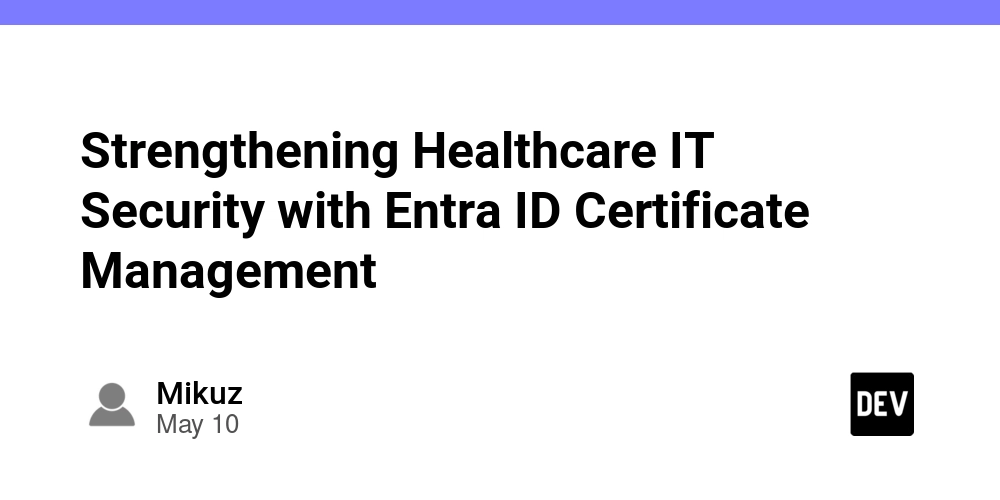
Strengthening Healthcare IT Security with Entra ID Certificate Management
As the healthcare industry embraces digital transformation, securing electronic health records (EHRs), medical devices, and patient data has never been more critical. Amid rising cyberattacks targeting healthcare systems, IT teams must adopt strong identity and access controls that go beyond passwords. Entra ID certificate management plays a crucial role in this shift, enabling secure authentication in environments with strict compliance demands and high-stakes data.
The Unique Security Landscape of Healthcare
Healthcare organizations face some of the toughest security challenges across industries. With legacy systems, BYOD policies, and remote care options, attack surfaces continue to expand. At the same time, healthcare data is highly lucrative for cybercriminals, making identity theft and unauthorized access a constant threat.
Unlike other industries, healthcare IT must comply with strict privacy laws like HIPAA, which mandate technical safeguards such as user authentication, access control, and activity logs. Certificate-based authentication helps meet these requirements by providing a secure, auditable alternative to passwords.
Entra ID Certificate Management in Healthcare Environments
Entra ID certificate management offers healthcare IT teams a scalable method for handling authentication securely across hybrid and cloud-based systems. While Entra ID does not function as a certificate authority itself, it integrates smoothly with existing PKI platforms, enabling certificate issuance and lifecycle automation.
This integration allows healthcare organizations to:
- Authenticate clinicians and staff using smart cards or FIDO2 tokens
- Secure access to medical devices and clinical applications
- Enforce certificate-based VPN or Wi-Fi access within hospitals and clinics
- Establish trust across partner networks through certificate validation
Key Benefits for the Healthcare Sector
Stronger Identity Assurance
Certificate-based authentication ties credentials to individuals and devices, reducing the risks associated with stolen passwords or shared logins. Certificates also support multi-factor authentication, providing another layer of defense in clinical and administrative workflows.
Reduced Credential Theft
Certificates are not easily phished or intercepted. Since they’re encrypted, stored locally, and time-bound, they minimize opportunities for unauthorized access even if endpoint devices are compromised.
Simplified Compliance and Audit Readiness
Entra ID logs certificate usage, authentication attempts, and revocation events. These logs support internal audits and external regulatory reviews, helping healthcare organizations demonstrate HIPAA compliance and data integrity.
Seamless Clinical Workflows
Healthcare professionals can’t afford to lose time logging in or recovering passwords during emergencies. With properly managed certificates, clinicians enjoy fast, reliable access to EHR systems and secure apps, even on mobile or shared devices.
Implementing Certificate-Based Authentication in Healthcare
Here’s a roadmap for deploying certificate systems in a healthcare context:
1. Assess Your Infrastructure
Identify current access points, including on-prem systems, cloud apps, and clinical devices. Determine where certificates can replace or supplement existing password-based logins.
2. Integrate with PKI and Entra ID
Choose a trusted certificate authority (CA) and integrate it with Microsoft Entra ID and Microsoft Intune. Use automated issuance policies to streamline certificate deployment across endpoints.
3. Set Certificate Policies
Establish key parameters such as:
- Minimum key length (e.g., 2048-bit RSA)
- Validity periods (typically 1–2 years)
- Renewal triggers and revocation protocols
4. Automate Monitoring and Expiration Alerts
Use platforms like Cayosoft Guardian to detect changes, track expirations, and send automated renewal reminders. Real-time monitoring ensures certificates remain valid and prevents service disruptions due to expiration.
Challenges in Medical Environments and How to Overcome Them
Legacy Device Compatibility
Many medical devices run on outdated OS versions. Consider using gateway authentication models where certificates authenticate at the network or application layer without direct integration with the device.
Staff Turnover
High turnover in healthcare means frequent onboarding and offboarding. Automated certificate provisioning tied to HR systems ensures that access rights update immediately.
Key Security
Always store private keys in secure hardware modules (HSMs) or device-based Trusted Platform Modules (TPMs). This prevents theft or misuse of certificate credentials.
The Future of Healthcare Identity Security
As healthcare organizations continue to modernize, identity security must evolve in parallel. Entra ID certificate management enables secure, scalable, and regulation-ready authentication models that fit the needs of hospitals, clinics, research labs, and remote care platforms.
By leveraging certificates, healthcare IT teams can:
- Minimize credential-related breaches
- Improve access efficiency for staff
- Maintain robust audit trails
- Meet complex compliance demands
Conclusion
The healthcare industry requires more than reactive security measures—it demands proactive identity protection tailored to its sensitive and high-pressure environment. Certificate-based authentication, managed through Entra ID and supported by automated tools, offers a resilient solution that helps healthcare organizations meet modern security and regulatory standards. Now is the time to make certificates the default method for protecting access to the data that matters most: patient lives.










































































































































































![[The AI Show Episode 146]: Rise of “AI-First” Companies, AI Job Disruption, GPT-4o Update Gets Rolled Back, How Big Consulting Firms Use AI, and Meta AI App](https://www.marketingaiinstitute.com/hubfs/ep%20146%20cover.png)




























































































































![[FREE EBOOKS] Offensive Security Using Python, Learn Computer Forensics — 2nd edition & Four More Best Selling Titles](https://www.javacodegeeks.com/wp-content/uploads/2012/12/jcg-logo.jpg)



![Ditching a Microsoft Job to Enter Startup Purgatory with Lonewolf Engineer Sam Crombie [Podcast #171]](https://cdn.hashnode.com/res/hashnode/image/upload/v1746753508177/0cd57f66-fdb0-4972-b285-1443a7db39fc.png?#)































































































































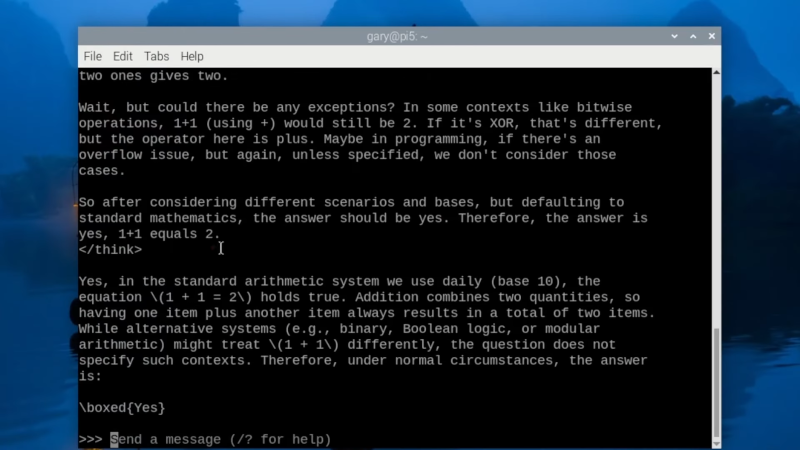
































































































-xl.jpg)





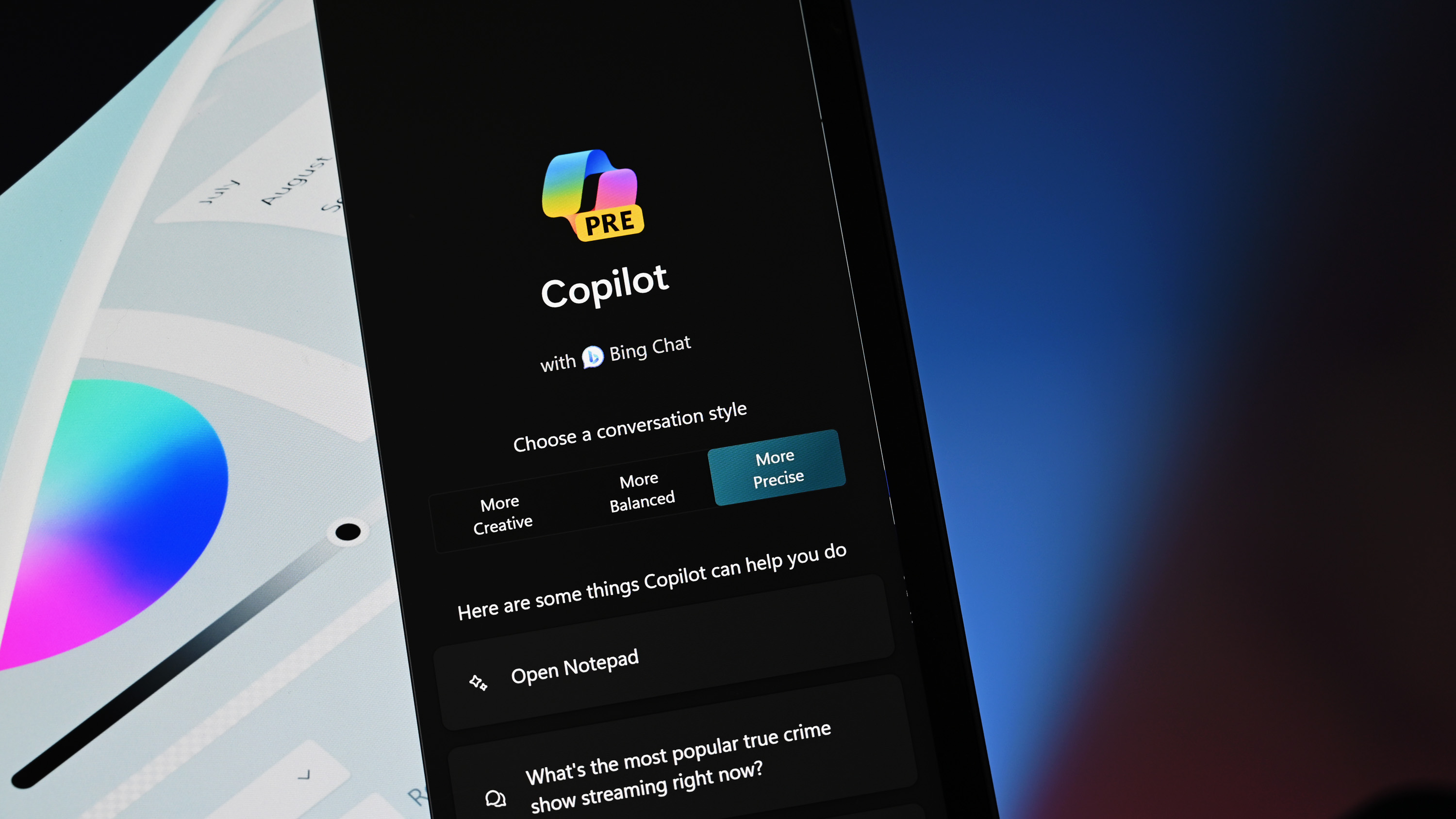






![As Galaxy Watch prepares a major change, which smartwatch design to you prefer? [Poll]](https://i0.wp.com/9to5google.com/wp-content/uploads/sites/4/2024/07/Galaxy-Watch-Ultra-and-Apple-Watch-Ultra-1.jpg?resize=1200%2C628&quality=82&strip=all&ssl=1)










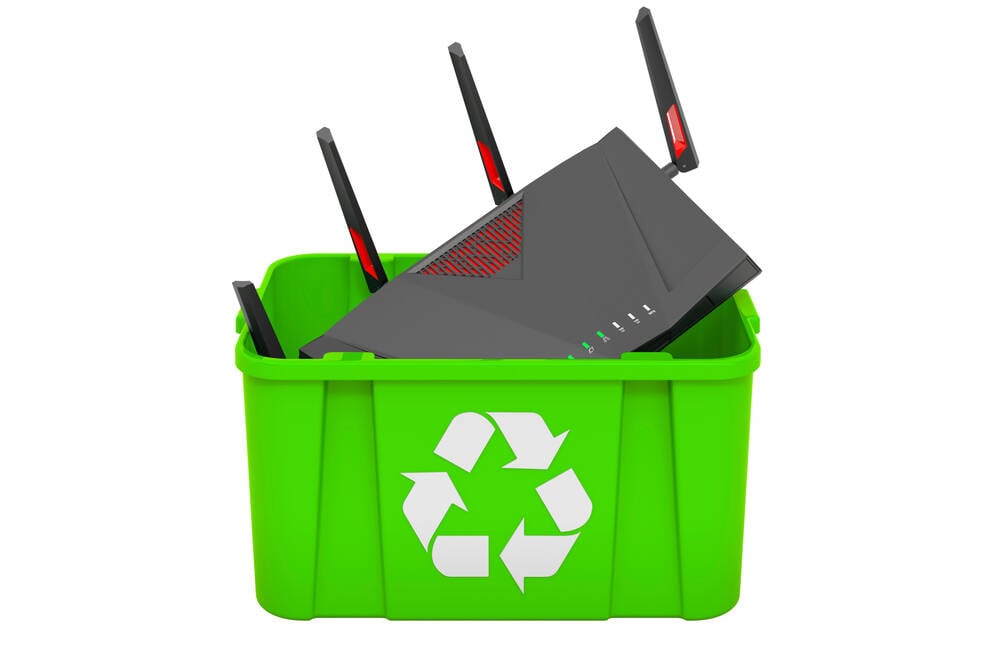


![Apple M4 iMac Drops to New All-Time Low Price of $1059 [Deal]](https://www.iclarified.com/images/news/97281/97281/97281-640.jpg)
![Beats Studio Buds + On Sale for $99.95 [Lowest Price Ever]](https://www.iclarified.com/images/news/96983/96983/96983-640.jpg)

![New iPad 11 (A16) On Sale for Just $277.78! [Lowest Price Ever]](https://www.iclarified.com/images/news/97273/97273/97273-640.jpg)















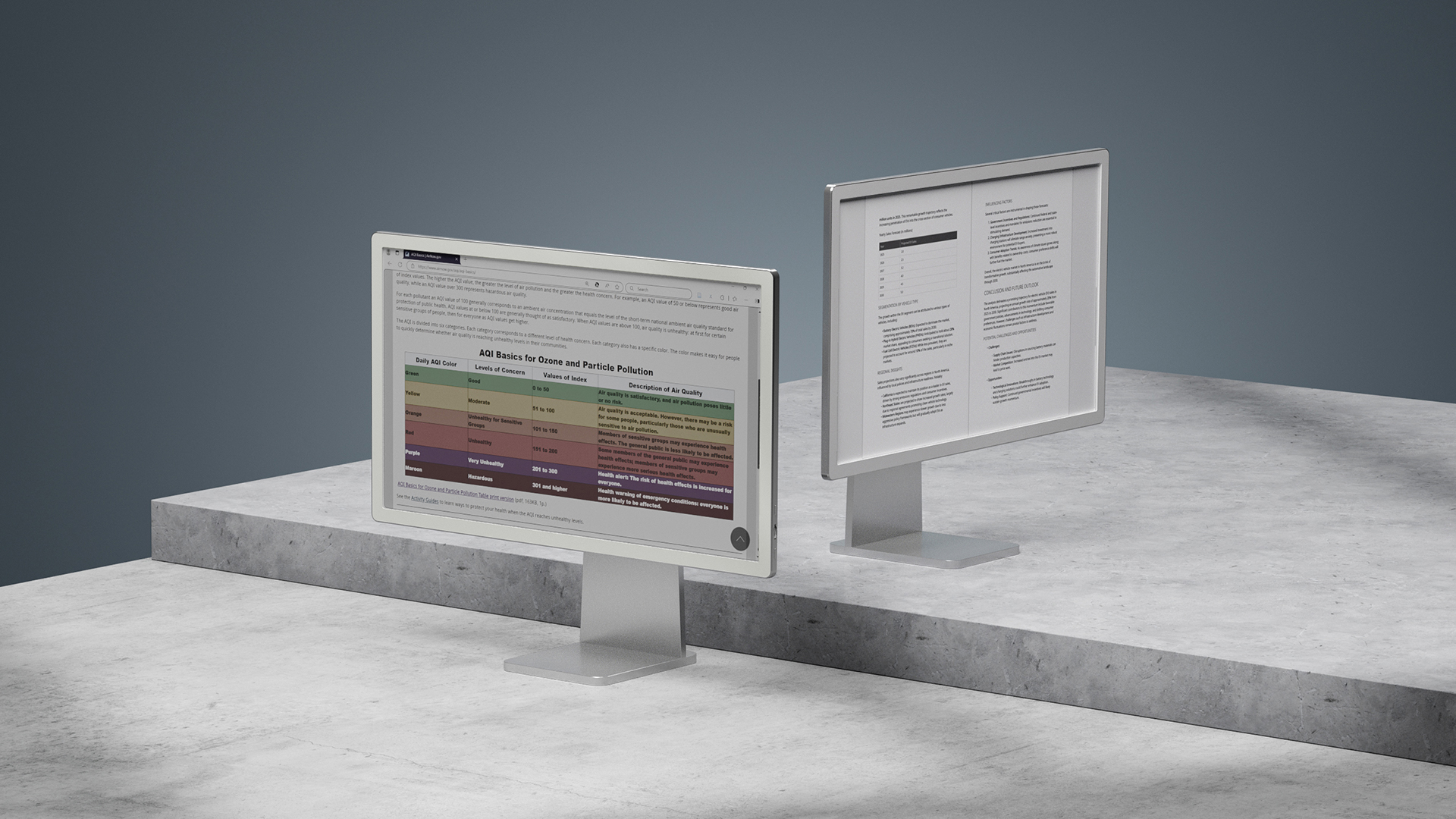






















![Apple's 11th Gen iPad Drops to New Low Price of $277.78 on Amazon [Updated]](https://images.macrumors.com/t/yQCVe42SNCzUyF04yj1XYLHG5FM=/2500x/article-new/2025/03/11th-gen-ipad-orange.jpeg)



![[Exclusive] Infinix GT DynaVue: a Prototype that could change everything!](https://www.gizchina.com/wp-content/uploads/images/2025/05/Screen-Shot-2025-05-10-at-16.07.40-PM-copy.png)



